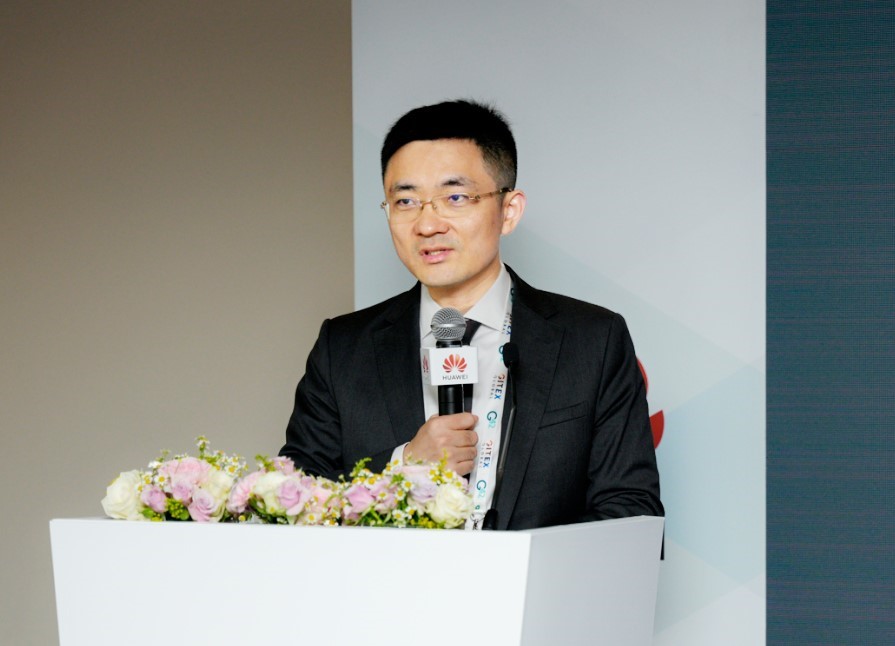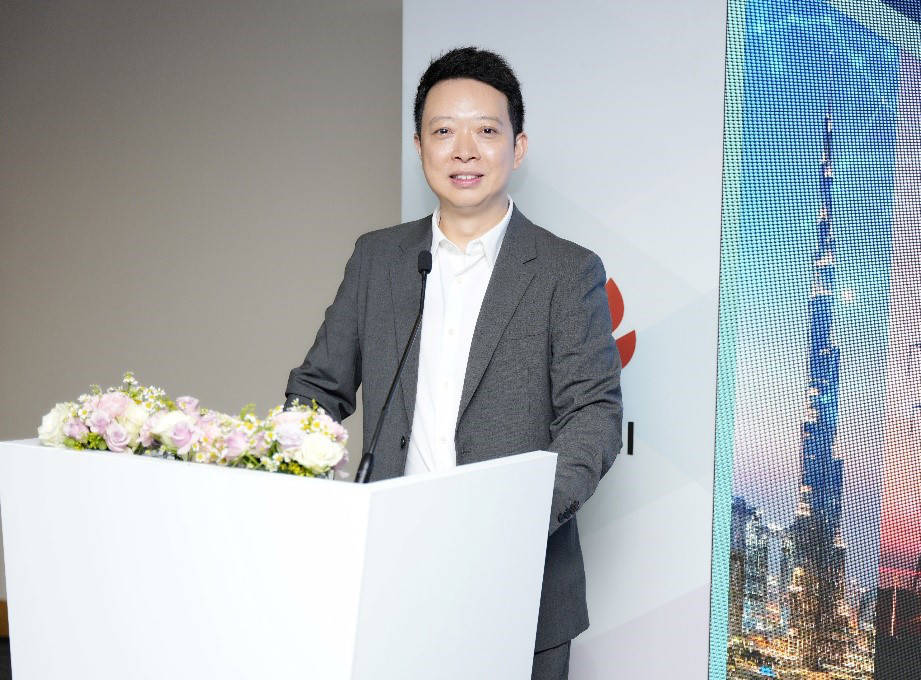[Dubai, UAE, October 15, 2024] During GITEX Global 2024, Huawei released the Intelligent Campus 2030 white paper for markets outside China at the forum Redefining Intelligent Campus with ICTs, Maximizing Enterprises' Intelligent Productivity with Xinghe Intelligent Campus. This white paper envisions the future of the intelligent campus.
David Shi, Vice President of ICT Marketing & Solution Sales Dept, Huawei,delivered an opening speech at the forum. He highlighted that as digital technology advances, the intelligent connectivity of everything will become a reality, which will allow campuses to be fully digital and intelligent. He added that future campuses will become fully perceptible, collaborative, and constantly online smart buildings that are capable of self-learning, self-troubleshooting, and making decisions and executing them independently. "Huawei is committed to bringing digital to every campus for pervasive intelligence and has been deeply involved with intelligent campuses for many years. We have proposed to redefine campuses with ICTs and have leveraged the advantages of our product portfolios to reshape campus connectivity, platform, and business. Up to now, we have helped over 1000 customers worldwide build secure, green, digital, and intelligent campuses," said David Shi.

David Shi, Vice President of ICT Marketing & Solution Sales Dept, Huawei
Eric He, CEO of Campus Team, Huawei, said in his speech that revolutions in energy and information take us closer to the intelligent world, where campuses will play a crucial role. As Eric He explains, we have entered the stage of intelligent campus 2.0, which is 10 Gbps, digital, intelligent, and green. During this stage, campus networks will evolve from simply transmitting data to providing quality connections, campus platforms will move beyond integrating IoT to providing data intelligence, and extensive business management will be upgraded to low-carbon operations. "Relying on ICTs to redefine campuses, Huawei looks forward to working with customers and industry peers to innovate as well as envision and build intelligent campus 2030," he said.

Eric He, CEO of Campus Team, Huawei
Shawn Zhao, President of the Campus Network Domain, Data Communication Product Line, Huawei, introduced Huawei's Xinghe Intelligent Campus Solution at the forum. As enterprises are witnessing a surge in the number of devices and video conferences, their digital and intelligent office requires improved network performance, security, experiences, and O&M. Huawei's all-scenario Wi-Fi 7 products can strengthen signals by 100% and improve concurrency by 50%. In addition, Huawei's application experience assurance solution ensures smooth video conferences and protects VIP services from being compromised, while the Wi-Fi Shield prevents data eavesdropping to ensure 100% network security.
Ibrahim Al Kindi, IT Director of the Arab Authority for Agricultural Investment and Development (AAAID), shared AAAID's experience in intelligent campus construction. AAAID and Huawei have collaborated to enhance its office experiences in five areas: seamless access, intelligent office conferences, full wireless network coverage, AI-based building control, and centralized IoT device access. Ibrahim Al Kindi stated that this is just the beginning of a new era of intelligent office, and AAAID will continue to explore the digital and intelligent transformation of the office field.
Fahad Daghriri, Chief Information Officer of Technical and Vocational Training Corporation (TVTC) in Saudi Arabia, shared how TVTC built an intelligent campus network with the help of Huawei. This network allows for wide coverage, high performance, and efficient O&M, improving mobile office for teachers and studying for students. "Our collaboration aims to achieve a win-win situation, promote digital transformation, build a one-stop campus network, create a smart education platform, and lay a solid foundation for long-term development," said Fahad Daghriri.

Huawei globally unveils the Intelligent Campus 2030 white paper
The campus is a basic unit in the making of a city. It is the main place where people live and work. It acts as an important carrier to boost the digital economy, and a key point to realize green and low-carbon transformation. In recent years, the industry has conducted in-depth exploration and cultivated practices surrounding the intelligent campus. Huawei, along with industry experts and scholars, provides insights into its future in the Intelligent Campus 2030 white paper.
Based on the insights into and practices of global intelligent campuses, this white paper proposes a far-sighted definition of future intelligent campus along with visions for its advancement. It outlines five trends that affect intelligent campus development, systematically depicts 10 typical future scenarios, and defines six key technical features of future intelligent campuses for the first time. Innovatively, the white paper proposes a unique reference architecture for the intelligent campus and 22 quantitative indicators to predict the prospects of intelligent campuses, guiding their implementation and construction.
Click the link to read more about the white paper: https://www.huawei.com/en/giv/intelligent-campus-2030